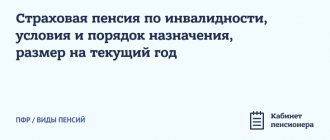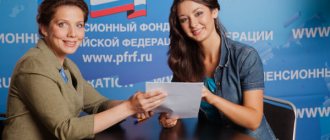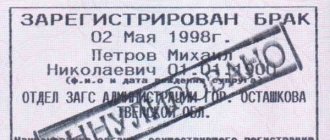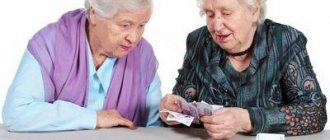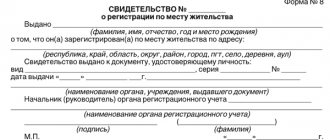Special social support measures are provided for disabled children in Russia. Thus, they are subject to payments that are not provided for some other preferential categories. In 2021, their sizes have been updated.
Having a child with a disability is a challenge for parents. In some cases, families are entitled to serious compensation for the illnesses of minors. Thus, in Irkutsk, a woman was ordered to pay 1 million rubles, since the perinatal center did not notice anomalies in the development of the fetal eyes in a timely manner. But this is a special case. Typically, support for disabled children is limited to social programs.
New payment amounts
Minors who have received the status of complete or partial incapacity are entitled to a pension. Its size does not depend on the group. From April 1, 2021, it is 13,912.09 rubles.
A parent (guardian) who stops working to care for a disabled child is entitled to an allowance of 10,000 rubles. Other categories of citizens are awarded 1,200 rubles. But they may expect new payments. In April 2021, the State Duma received a proposal from the Legislative Assembly of Sevastopol to increase the amount of benefits for caring for a disabled child to the subsistence level. If the document is approved, the changes were to come into force in 2022. The new payment is subject to indexation corresponding to the annual recalculation of the PM.
The legislative framework
Issues related to the provision of pensions to citizens are resolved in current legislative acts. The fundamental and most important among them is the Federal Law of December 28. 2013 No. 400-FZ “On insurance pensions”. It is this legal act that establishes, among other things, the procedure and grounds for the early accrual of pension funds to parents raising children with disabilities.
In particular, Article 32 of this legal document determines the list of persons who have the right to retain an early pension. It also establishes criteria in terms of having a certain insurance period and the number of points that potential recipients of early payments must meet.
In addition, Article 12 of this federal law ensures the protection of the pension rights of citizens who are raising a disabled child. This is ensured by the fact that the time during which a citizen raised a minor with an established disability is counted in the insurance period with the assignment of labor points that form the IPC.
In addition, when considering issues related to preferential pension provision for citizens raising disabled children, one should take into account the provisions of the Federal Law “On Social Protection of Disabled Persons in the Russian Federation” dated November 24, 1995 No. 181-FZ. This normative act defines the concept of “disabled person”, “disabled child”.
In addition, the norms of the law establish the procedure for the activities of medical and social examination institutions (MSE) within the framework of a comprehensive assessment of the health status and working capacity of citizens when assigning them one or another disability group or refusing to do so.
Important! Until 2015, issues related to the regulation of the procedure for establishing early pensions for preferential categories of citizens were reflected in the provisions of the Federal Law of December 17, 2001 “On Labor Pensions in the Russian Federation” No. 173-FZ. However, due to the entry into force of Federal Law No. 400-FZ of December 28, 2013, this legal act is no longer used except in individual cases of applying some of its norms by analogy.
Federal benefits for disabled children
In addition to basic benefits, this category of citizens is entitled to a monthly cash payment. It depends on the disability group. In 2021, taking into account indexation, its new dimensions will be:
- I – 2,974 rubles;
- II – 2,123 rubles;
- III – 1,700 rub.
Amounts are indicated taking into account the mandatory set of services. Disabled children are entitled to partial compensation for the costs of travel on public transport, medical care and stay in a sanatorium. You can apply for NSO in cash equivalent until October 1. The new payment amount is calculated from January 1 of the following year.
Who is eligible to receive benefits?
To receive financial assistance from the Pension Fund, you need to undergo a medical and social examination and obtain the appropriate status. The category “disabled child” is assigned for a certain period: until recovery or reaching adulthood. After turning 18 years old, there is a need for re-examination.
The following category of citizens has the right to receive financial disability benefits::
- adults with groups 1,2,3;
- sick children;
- disabled children;
- adults who have established a disability upon reaching 18 years of age and who have proven that the disability is congenital.
The condition for establishing social benefits is permanent residence on the territory of the Russian Federation.
Regional payments
Subjects of the Russian Federation have the right to establish their own types of support for children with disabilities. Thus, in Moscow and the region, families are entitled to an additional allowance of about 12,000 rubles. Residents of St. Petersburg receive 6,223 – 14,021 rubles transferred to their social card. for children with mental disorders. The funds cannot be cashed out, only spent on the needs of the recipient.
Own payments for disabled minors exist in Yaroslavl, Samara and other regions. But their sizes are usually smaller than those in the capital.
0
Pension for a disabled foster child
In order for adoptive parents or guardians to receive a pension for a disabled child under their care, they need to contact the Pension Fund of the Russian Federation and provide a standard list of documents plus an order to appoint guardianship or create a foster family.
While the child was in the orphanage, the state paid him a pension, but it went to a special bank account. Guardians and adoptive parents cannot receive this money. Part of the funds can be withdrawn only with the permission of the district guardianship department. You need a good reason for this. For example, payment for urgent treatment, expensive medicine or rehabilitation equipment.
After the child is accepted into the family, the pension is paid to the nominal account of the guardian or adoptive parent. To do this, you need to open a nominal account in any bank and transfer its details to the Pension Fund of the Russian Federation.
What benefits and rights are entitled to the mother of a disabled child in 2021?
In accordance with the law on changes to the pension system adopted on October 3, 2021, the retirement age will not be increased, including for citizens whose pension was assigned earlier than the generally established retirement age for social reasons and health reasons, including one of the parents of disabled people with childhood, who raised them until they reached the age of 8 years (men and women), as well as guardians of disabled people from childhood or persons who were guardians of disabled people from childhood, who raised them until they reached the age of 8 years (men and women).
Among other categories of beneficiaries who will not be affected by the increase in retirement age:
- mothers of five or more children who raised them until the age of eight;
- mothers of two or more children who have the necessary work experience in the Far North or equivalent areas,
- disabled due to war trauma,
- visually impaired people of group I,
- dwarfs and midgets,
- as well as reindeer herders, fishermen and hunters permanently living in the Far North or equivalent areas.
Also among those who maintain the same retirement age are those affected by radiation accidents.
“Since this norm of the current legislation does not change, it is not mentioned in the draft federal law “On Amendments to Certain Legislative Acts of the Russian Federation on the Appointment and Payment of Pensions,” which provides for an increase in the retirement age,” explained the press service of the Ministry of Labor.
Is the pension of a disabled child considered to be family income when it is recognized as low-income?
1. When calculating the average per capita family income and the income of a citizen living alone, for the provision of state social assistance to them, all types of income received by each family member or citizen living alone in cash and in kind are taken into account, including:
a) all payments provided for by the wage system, taken into account when calculating average earnings in accordance with Decree of the Government of the Russian Federation of April 11, 2003 N 213 “On the specifics of the procedure for calculating average wages”;b) average earnings maintained in cases provided for by labor legislation;
c) compensation paid by a state body or public association for the performance of state or public duties;
d) severance pay paid upon dismissal, compensation upon resignation, wages retained for the period of employment upon dismissal due to liquidation of the organization, reduction in the number or staff of employees;
e) social payments from budgets of all levels, state extra-budgetary funds and other sources, which include:
pensions, compensation payments (except for compensation payments to non-working able-bodied persons caring for disabled citizens) and additional monthly financial support for pensioners;
monthly lifelong allowance for retired judges;
scholarships paid to students in professional educational organizations and educational organizations of higher education, graduate students studying full-time in programs for training scientific and pedagogical personnel, and doctoral students of educational organizations of higher education and scientific organizations studying in religious educational organizations, as well as compensation payments to these categories citizens during their stay on academic leave for medical reasons;
unemployment benefits, financial assistance and other payments to unemployed citizens, as well as scholarships and financial assistance paid to citizens during the period of undergoing vocational training and receiving additional professional education in the direction of the employment service, payments to unemployed citizens taking part in public works, and unemployed citizens those in particular need of social protection during the period of their participation in temporary work, as well as payments to minor citizens aged 14 to 18 years during the period of their participation in temporary work;
temporary disability benefits, maternity benefits, as well as a one-time benefit for women registered with medical institutions in the early stages of pregnancy;
monthly child benefit;
monthly allowance for the period of parental leave until the child reaches the age of 1.5 years and monthly compensation payments to citizens who are in an employment relationship under the terms of an employment contract and are on parental leave until the child reaches the age of 3 years;
monthly allowance to the spouses of military personnel serving under a contract during the period of their residence with their spouses in areas where they are forced not to work or cannot find a job due to the lack of employment opportunities in their specialty and were recognized as unemployed in the prescribed manner, as well as during the period when spouses of military personnel are forced not to work due to the health of their children related to the living conditions at the place of military service of the spouse, if, according to the conclusion of a health care institution, their children need outside care before reaching the age of 18;
monthly compensation payment to non-working wives of ordinary and commanding officers of the internal affairs bodies of the Russian Federation and institutions of the penal system in remote garrisons and areas where there is no possibility of their employment;
monthly insurance payments for compulsory social insurance against accidents at work and occupational diseases;
allowances and additional payments to all types of payments specified in this subclause, and other social payments established by state authorities of the Russian Federation, constituent entities of the Russian Federation, local government bodies, organizations;
f) income from property owned by a family (its individual members) or a citizen living alone, which includes:
income from the sale and rental (hire) of real estate (land plots, houses, apartments, dachas, garages), transport and other mechanical means, means of processing and storing products;
income from the sale of fruits and products of personal subsidiary plots (perennial crops, garden products, production and demonstration animals, poultry, fur-bearing animals, bees, fish);
g) other income of a family or a citizen living alone, which includes:
monetary allowances for military personnel, employees of internal affairs bodies of the Russian Federation, institutions and bodies of the penal system, customs authorities of the Russian Federation and other bodies in which the legislation of the Russian Federation provides for federal public service related to law enforcement activities, as well as additional payments that are permanent nature and food supply established by the legislation of the Russian Federation;
a one-time benefit upon dismissal from military service, from the internal affairs bodies of the Russian Federation, institutions and bodies of the penal system, customs authorities of the Russian Federation, and other bodies in which the legislation of the Russian Federation provides for federal public service related to law enforcement activities;
payment for work under contracts concluded in accordance with the civil legislation of the Russian Federation;
financial assistance provided by employers to their employees, including former employees who quit due to retirement due to disability or age;
royalties received in accordance with the legislation of the Russian Federation on copyright and related rights, including under copyright inheritance agreements;
income from entrepreneurial activities, including income received as a result of the activities of a peasant (farm) farm, including farms without the formation of a legal entity;
income from shares and other income from participation in the management of the organization’s property;
alimony received by family members;
interest on bank deposits;
inherited and gifted funds;
cash equivalents of benefits and social guarantees received by family members established by state authorities of the Russian Federation, constituent entities of the Russian Federation, local government bodies, and organizations.
Conditions for granting an early pension to a guardian of children with disabilities since childhood in 2021
Also, the right to receive an old-age insurance pension of a previously established retirement age is enjoyed by guardians of disabled people since childhood, and by persons who have been guardians of disabled people since childhood, even if they are not such at the time of applying for a pension.
- For this category of citizens, the retirement age is reduced by one year for every one year and six months of guardianship, but not more than 5 years in total, if they have an insurance record of at least 20 and 15 years, respectively, men and women.
- The age at which the right to an early old-age pension can be exercised is determined proportionally depending on the length of the period of guardianship over a disabled child.
- In this case, a mandatory condition is the establishment of guardianship and upbringing of the child until the age of 8.
- The duration of guardianship for the right to early retirement is determined only taking into account the periods when the child was recognized as disabled.”

